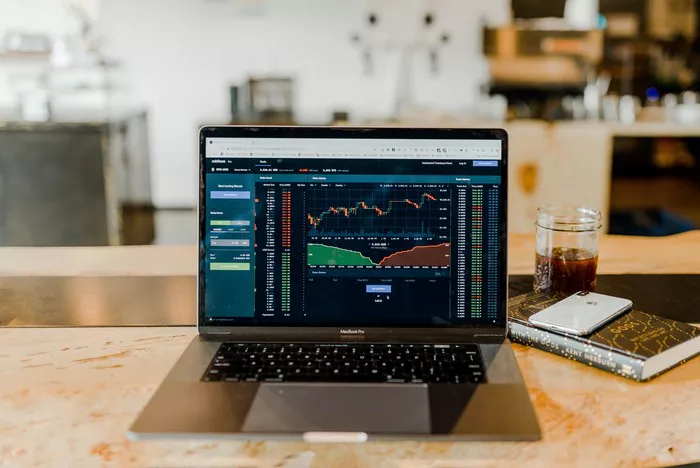Embarking on a journey in the world of financial markets as a futures trader can be both exhilarating and challenging. Futures trading offers a plethora of opportunities, but success requires a nuanced understanding of market dynamics, risk management, and effective strategies. In this article, we explore seven essential tips that every futures trader should know to navigate the complexities of the market and enhance their chances of success.
Educate Yourself About Futures
Before diving into the world of futures trading, it is imperative to build a solid foundation of knowledge. Understanding the mechanics of futures contracts, market terminology, and the factors influencing futures prices is crucial. Take the time to familiarize yourself with concepts such as leverage, margin requirements, and contract specifications. Numerous educational resources, including books, online courses, and market analysis reports, can provide valuable insights. A well-informed trader is better equipped to make strategic decisions in the dynamic environment of futures trading.
Master Risk Management Techniques
Effective risk management is the cornerstone of successful futures trading. The inherent leverage in futures contracts amplifies both potential gains and losses, making it essential to implement prudent risk management techniques. Establish clear risk-reward ratios for each trade, set stop-loss orders to limit potential losses, and diversify your trading portfolio. Avoid overleveraging, as excessive risk-taking can lead to significant capital depletion. By prioritizing risk management, futures traders can safeguard their capital and enhance their longevity in the market.
Develop a Robust Trading Plan
A well-defined and comprehensive trading plan is indispensable for futures traders. Your trading plan should outline your trading goals, risk tolerance, and the criteria for entering and exiting trades. Consider factors such as market analysis, time frames, and the types of futures contracts you intend to trade. A disciplined approach to following your trading plan helps avoid impulsive decisions driven by emotions. Regularly review and refine your trading plan to adapt to evolving market conditions and ensure it remains aligned with your trading objectives.
See Also: Can you buy futures on any stock?
Stay Informed and Continuously Learn
Futures markets are dynamic, influenced by a myriad of factors ranging from economic indicators to geopolitical events. Staying informed about global developments and their potential impact on markets is essential for making informed trading decisions. Engage in continuous learning by staying abreast of market trends, exploring new trading strategies, and leveraging technological advancements. Attend seminars, webinars, and industry conferences to enhance your understanding of the ever-evolving landscape of futures trading.
Understand Market Liquidity
Liquidity is a crucial aspect of futures trading that can significantly impact your ability to enter and exit positions efficiently. Different futures contracts exhibit varying levels of liquidity, and understanding the liquidity of the markets you trade is paramount. More liquid markets tend to have narrower bid-ask spreads, reducing trading costs. Be aware of the times when markets are most active, such as overlapping trading sessions, to capitalize on enhanced liquidity. Regularly assess liquidity conditions and adapt your trading strategies accordingly.
Diversify Your Trading Portfolio
Diversification is a key principle in managing risk and optimizing returns in futures trading. Instead of concentrating on a single asset class or market sector, consider diversifying your trading portfolio across different futures contracts. This approach helps spread risk and minimizes the impact of adverse movements in any single market. Diversification can involve trading different types of commodities, financial instruments, or utilizing various trading strategies. A diversified portfolio provides a balanced approach to futures trading, enhancing the resilience of your overall trading strategy.
Practice Discipline and Emotional Control
Discipline and emotional control are non-negotiable qualities for successful futures traders. The volatility of futures markets can evoke strong emotions, leading to impulsive decisions that deviate from your trading plan. Cultivate the ability to remain disciplined in adhering to your strategy, even in the face of market fluctuations. Implementing pre-defined entry and exit points, along with risk management measures, helps mitigate the impact of emotional trading. Recognize that losses are part of trading, and maintaining emotional composure is crucial for long-term success.
Conclusion
Mastering the craft of futures trading requires a combination of education, risk management, discipline, and adaptability. By adhering to these seven essential tips, futures traders can enhance their skills and increase their chances of success in the dynamic and challenging world of financial markets. Whether you are a novice trader or an experienced professional, continuously refining your knowledge, staying disciplined, and embracing a strategic approach will contribute to a resilient and sustainable futures trading journey. Remember, success in futures trading is not just about making profits but also about developing the skills and mindset needed to navigate the ever-evolving landscape of global financial markets.


